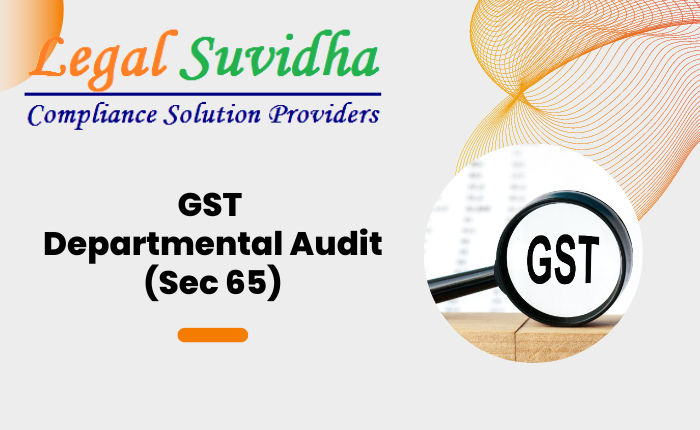A departmental GST audit is a critical process for ensuring businesses adhere to GST regulations. This article presents a comprehensive checklist to guide businesses through a GST audit, covering various aspects of the process.
Legal Provisions:
- The Commissioner of CGST/SGST or an authorized officer can conduct a GST audit on a taxpayer.
- The taxpayer receives a Notice in Form GST ADT-01(Rule 101(2)) at least 15 days before the audit.
- The notice specifies the audit period (e.g., F.Y-2017-18, 2018-19), which starts after the taxpayer’s first submission.
- Information about the designated person for coordination with the GST department must be provided.
- The audit should conclude within 3 months from the audit’s start, with the option for a 6-month extension.
- The GST Officer can perform the audit at the taxpayer’s business location or office.
- After reviewing the taxpayer’s books and independent findings, the auditor issues an observation letter.
- The taxpayer responds with proper explanations and evidence against the observations.
- Based on the response, the officer issues a draft audit report followed by a final audit report (ADT-02) within 30 days.
- If tax discrepancies are found, the officer can take action under Section 73 or Section 74.
Audit Checklist for Sales (Outward):
- Verify turnover reconciliation between Profit and Loss and GSTR9.
- Record GSTR3B and GSTR1 months in the outward register for each invoice.
- Reconcile books with GSTR3B, GSTR1, and GSTR9 data.
- Maintain Eway bill records for sales and IRN details for sales invoices.
- Include details of Export sales with Foreign Inward Remittance Certificate (FIRC).
- Document payments made under Reverse Charge Mechanism (RCM).
- Ensure accuracy of Fixed Asset (FA) sales, matching FA Schedule and asset deletion.
- Keep track of additional income sources like scrap sales and interest.
- List credit notes with references to original invoices and applicable amendments.
- Maintain records of invoices or credit notes filed in subsequent years with interest implications.
- Document ISD or cross-charge invoices, including workings for Intra and Inter-company transactions.
- Note details of services imported from related parties.
- Reconcile 27Q data with outward register, particularly for RCM on foreign payments.
Audit Checklist for Purchases (Inward):
- Reconcile books with GSTR3B and GSTR9 data for purchases.
- Note GSTR3B month against each invoice in the inward register.
- Keep records of payment dates for purchase invoices, ensuring compliance with the 180-day rule.
- Obtain certificates from vendors for invoices not filed in GSTR1 but with GST liability paid.
- Verify imports and reconcile bill of entries with GSTR2A data.
- Review and address block credit or ineligible Input Tax Credit (ITC).
- Reconcile ITC availed on Reverse Charge Mechanism (RCM) and related liability payments.
- Analyze General Ledgers (GLs) subject to RCM, ensuring compliance.
- Calculate ITC reversal for businesses engaged in both taxable and exempt supplies.
- Scrutinize details of goods lost, personal consumption, gifts, etc., and apply necessary ITC reversals.
Documentation:
- Maintain copies of invoices for both purchase and sales transactions.
- Preserve self-generated invoices related to Reverse Charge Mechanism (RCM) and Cross Charge.
- Archive copies of GSTR9, GSTR9C, GSTR1, and GSTR3B for the audit period.
- Retain financial records for the relevant fiscal year.
- Store a copy of 27Q, a form for TDS under Section 195 of the Income Tax Act.
- Safeguard copies of forms 15CA, 15CB, and 3CEB, which are required for certain financial transactions.
Conclusion:
A thorough understanding of legal provisions and a comprehensive checklist are crucial for a successful departmental GST audit. Following the outlined checklist for sales, purchases, reconciliations, and proper documentation ensures businesses maintain compliance and experience a smoother audit process.
If You have any queries then connect with us at [email protected] or [email protected] & contact us & stay updated with our latest blogs & articles










